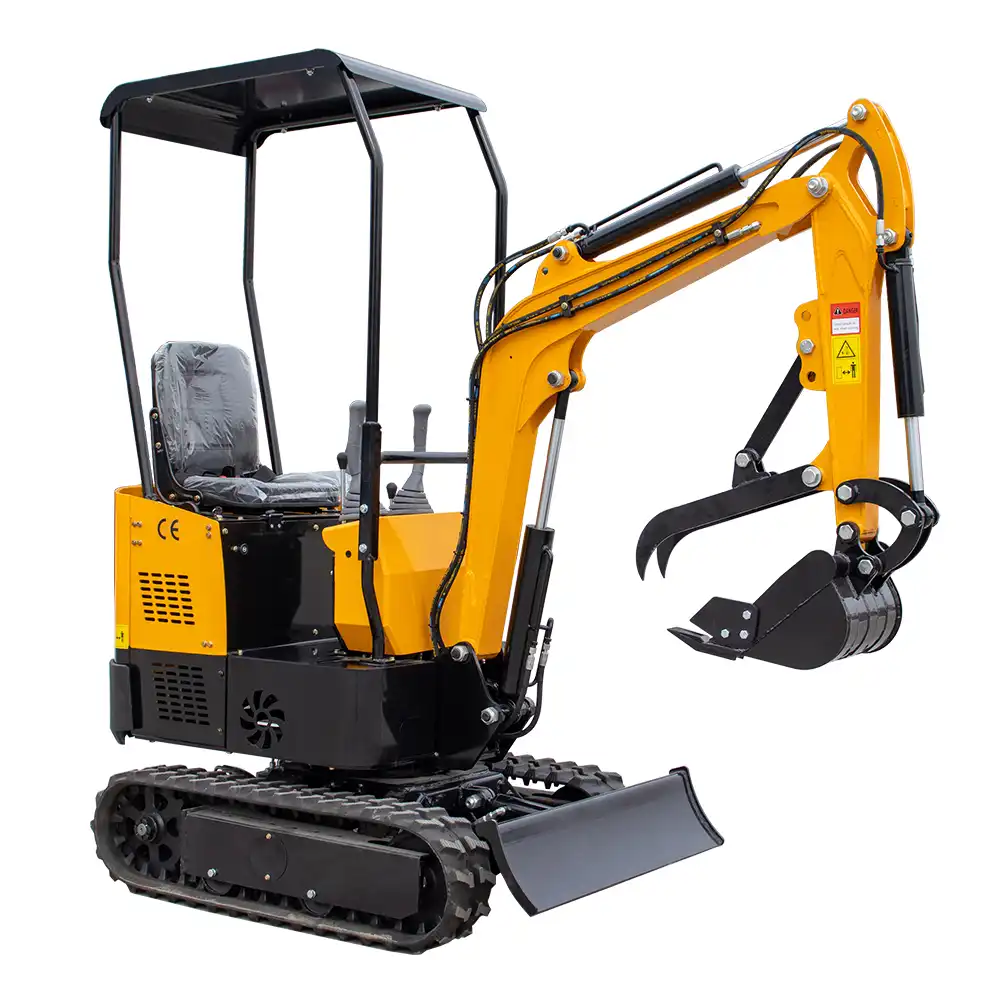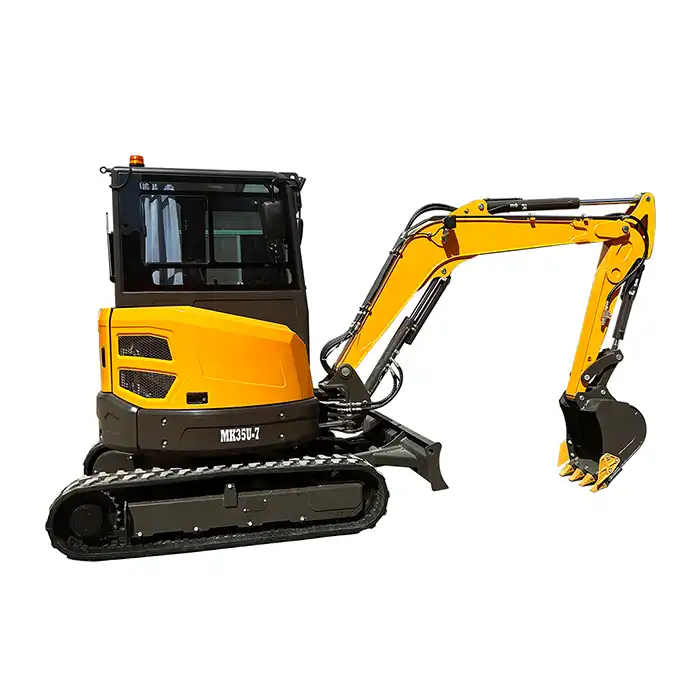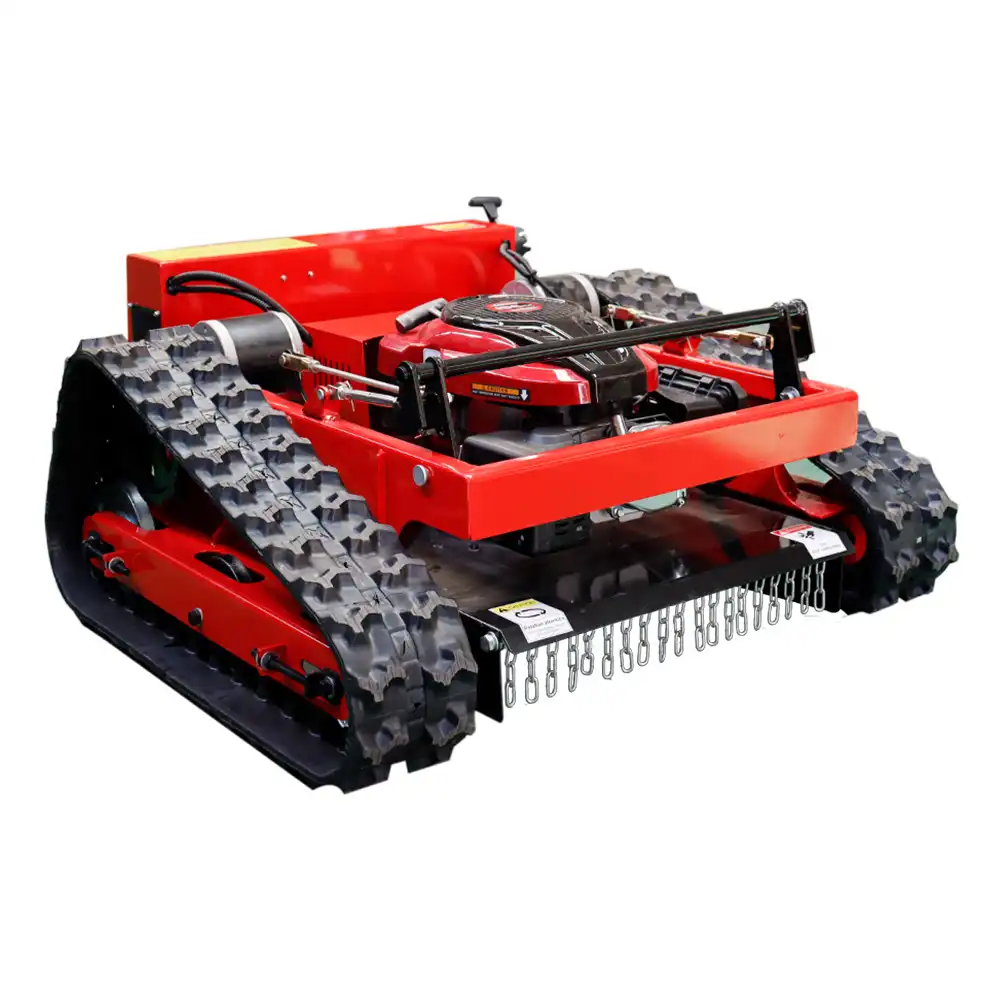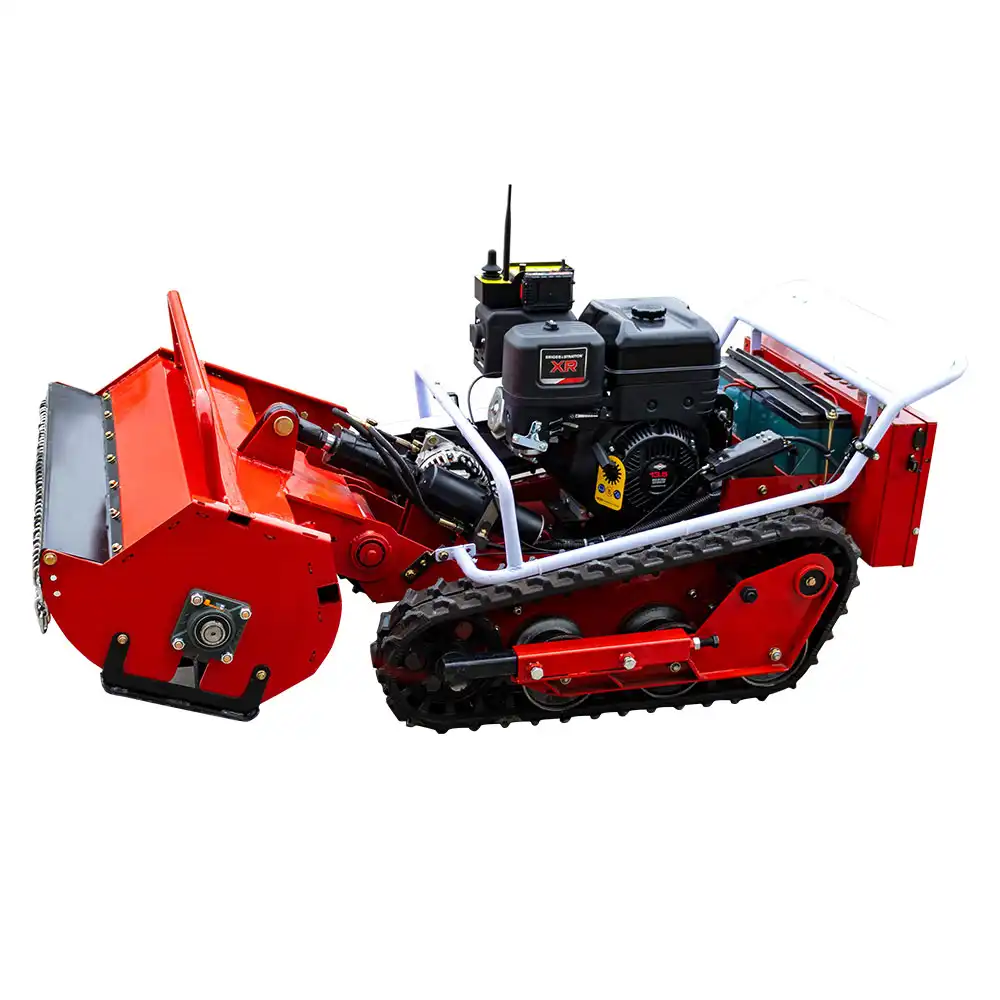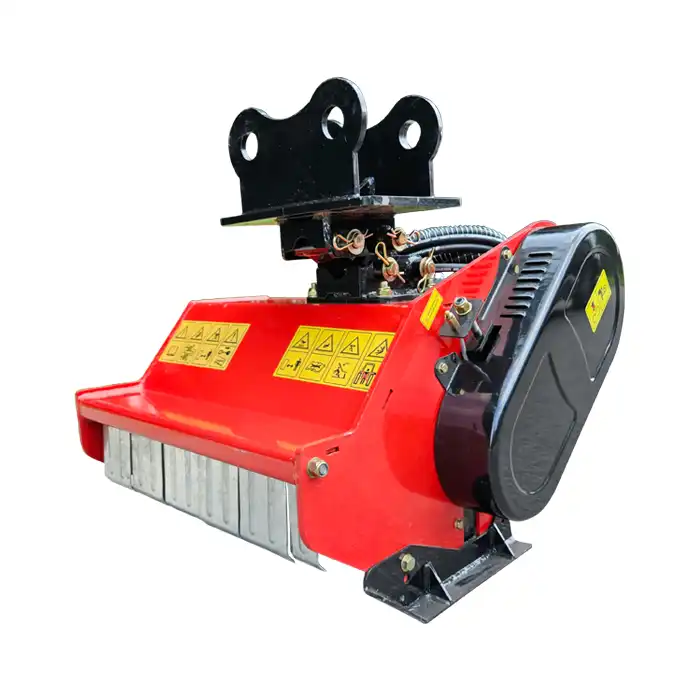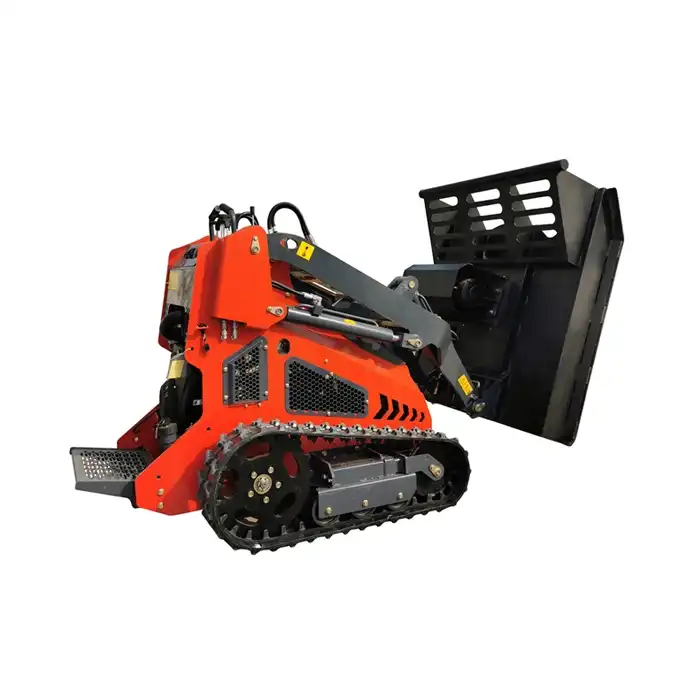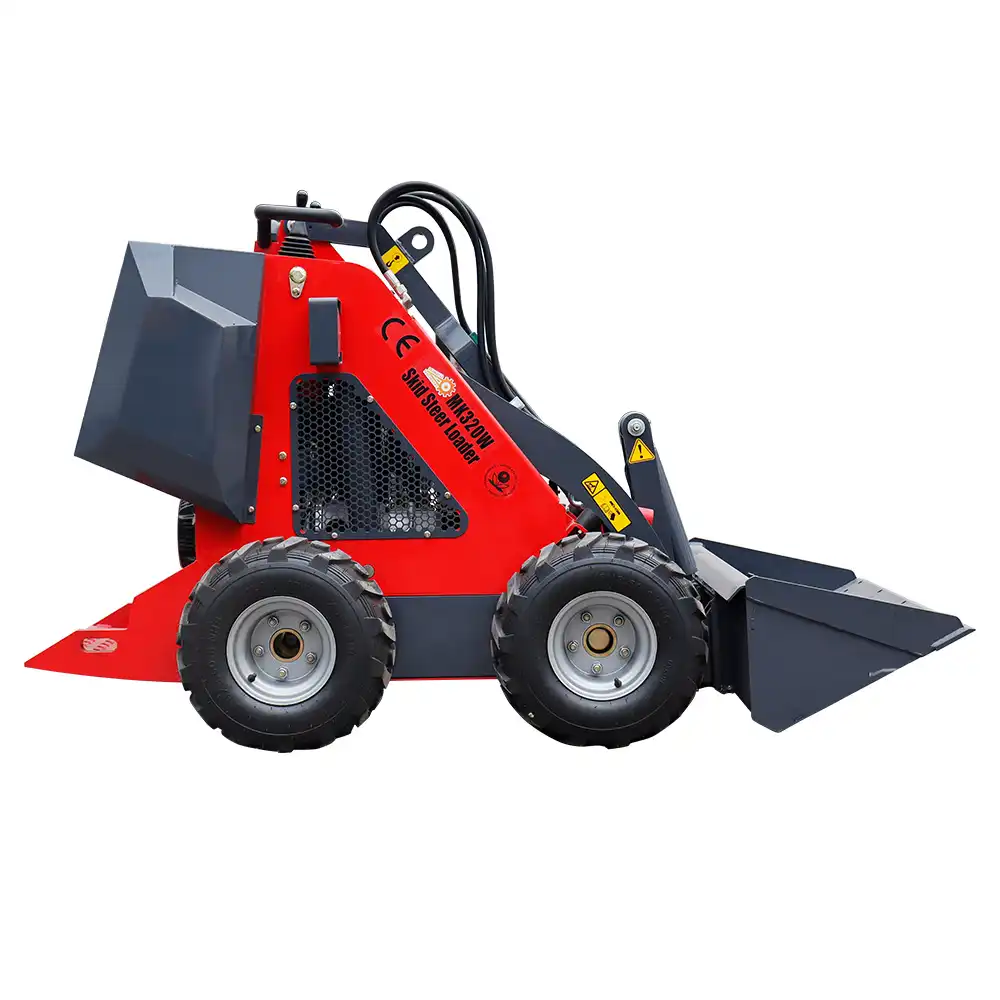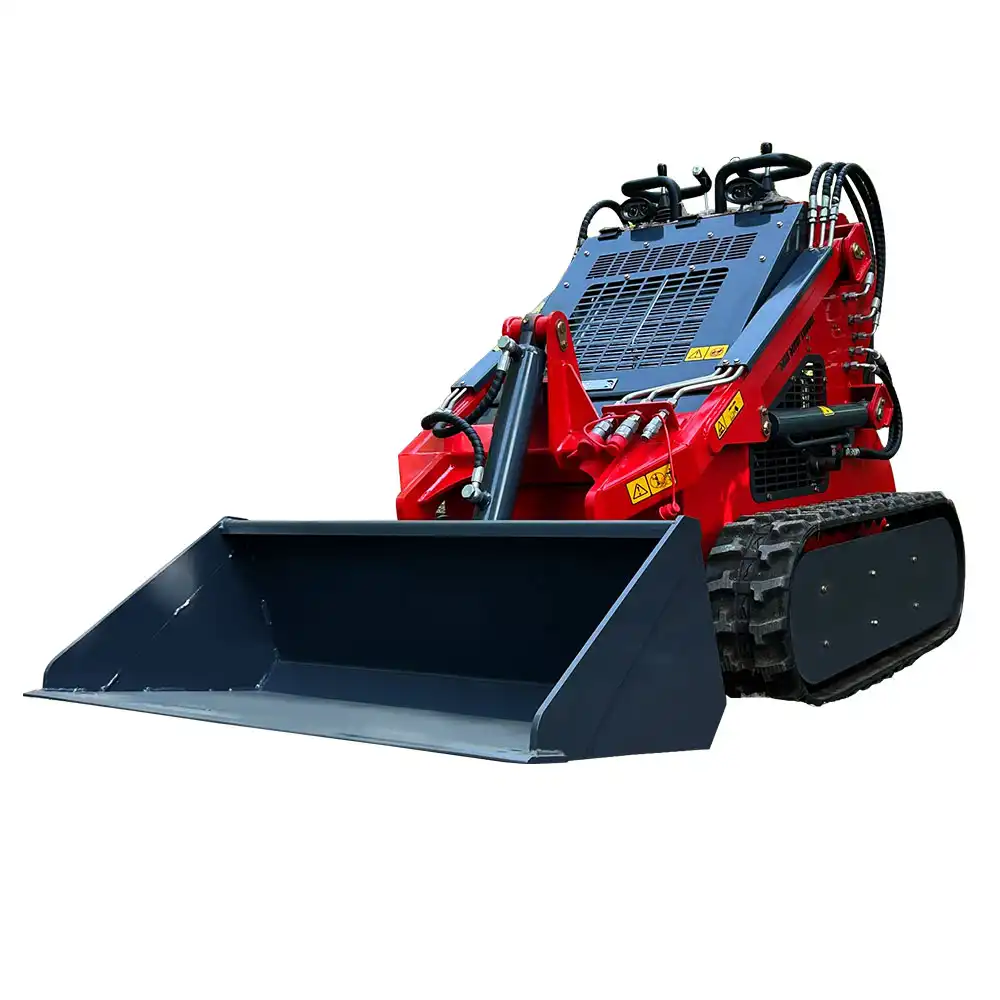1.2 Ton Mini Excavator vs 1 Ton: Which One Should You Choose?
When selecting the right Mini Excavator for your construction or landscaping projects, the decision between a 1.2 ton and 1 ton model can significantly impact your operational efficiency and project outcomes. This comprehensive comparison will guide you through the key differences, advantages, and practical considerations to help you make an informed choice that aligns with your specific requirements and budget constraints.
Choosing between a 1.2 Ton Mini Excavator and a 1 ton model depends primarily on your project scope, workspace limitations, and performance requirements. The 1.2 Ton Mini Excavator offers superior digging power, enhanced stability, and greater versatility for medium-scale excavation tasks, making it ideal for contractors handling diverse projects. While 1 ton models excel in ultra-compact spaces with minimal weight restrictions, the 1.2 ton variant provides the perfect balance of portability and performance, delivering approximately 20% more digging force and improved operational efficiency for most construction applications.
Performance and Capability Differences
Digging Power and Depth Capabilities
The 1.2 Ton Mini Excavator demonstrates superior excavation performance compared to its 1 ton counterpart, primarily due to its enhanced hydraulic system and increased operating weight. With a maximum digging depth of 1630-1700mm, the 1.2 Ton Mini Excavator can tackle deeper trenching projects that would challenge smaller machines. The additional weight provides better ground penetration and stability during operation, particularly when working with compacted soils or rocky terrain. Construction professionals often find that the extra digging force translates to faster project completion times, as the machine can move through challenging materials more efficiently. The improved hydraulic flow rate allows for smoother bucket movements and more precise material handling, making it particularly valuable for detailed landscaping work or utility installations where accuracy is paramount.
Engine Performance and Fuel Efficiency
Modern 1.2 Ton Mini Excavator models feature advanced engine technology, typically equipped with Euro 5 EPA certified Kubota D722 engines delivering 10.2kw of power. This represents a significant advantage over 1 ton models, which usually operate with lower power outputs. The increased engine capacity not only provides more consistent performance under load but also maintains efficiency during extended operation periods. Contractors report that the 1.2 ton models demonstrate better fuel economy per cubic meter of material moved, making them more cost-effective for medium to large-scale projects. The enhanced power-to-weight ratio means operators can maintain consistent working speeds even when tackling demanding excavation tasks, reducing overall project timelines and associated labor costs.
Hydraulic System Advantages
The hydraulic system in a 1.2 Ton Mini Excavator typically operates at higher pressures and flow rates compared to 1 ton models, resulting in faster cycle times and more responsive controls. This improved hydraulic performance translates to increased productivity, with operators able to complete more work cycles per hour. The enhanced system also supports a wider range of attachments, from hydraulic hammers to specialized grading buckets, expanding the machine's versatility across different job types. Professional operators particularly appreciate the smoother operation and reduced vibration levels, which contribute to less operator fatigue during extended work sessions and improved precision in delicate operations.
Size, Weight, and Maneuverability Considerations
Transportation and Mobility Factors
While the 1.2 Ton Mini Excavator is slightly larger than 1 ton models, it remains highly transportable on standard trailers without requiring special permits in most jurisdictions. The typical transport dimensions of 2200×940×2150mm allow for easy loading and secure transport between job sites. The additional weight, while requiring slightly more robust transportation equipment, provides significant benefits in terms of stability and working performance that often justify the minor logistical considerations. Many contractors find that the improved productivity of the 1.2 ton model more than compensates for any additional transportation costs, particularly when working on projects that require sustained digging performance.
Worksite Access and Space Requirements
The 1.2 Ton Mini Excavator maintains excellent maneuverability in confined spaces while offering improved stability compared to lighter models. With a typical chassis width of 940mm and the option for retractable tracks, these machines can navigate through standard doorways and gates, making them suitable for indoor demolition or backyard landscaping projects. The lower ground pressure distribution of the 1.2 ton model actually makes it preferable for working on sensitive surfaces like finished lawns or paved areas, where the increased footprint helps prevent damage. The enhanced stability also allows for safer operation on slopes and uneven terrain, expanding the range of accessible work areas.
Operating Comfort and Control
Operators consistently report superior comfort and control when working with 1.2 Ton Mini Excavator models compared to lighter alternatives. The increased mass provides natural vibration dampening, reducing operator fatigue during extended work sessions. The larger platform typically allows for more spacious operator stations, with improved visibility and ergonomic controls. Many 1.2 ton models offer optional cabin enclosures with climate control, enhancing operator comfort and productivity in adverse weather conditions. The improved stability also translates to more precise control during delicate operations, making these machines particularly valuable for finished grading and landscaping applications.
Cost-Benefit Analysis and ROI
Initial Investment and Operating Costs
The 1.2 Ton Mini Excavator typically requires a moderate premium over 1 ton models, but this initial investment often yields significant returns through improved productivity and versatility. Operating costs remain competitive due to efficient engine design and lower maintenance requirements per unit of work completed. The enhanced durability of components designed for the higher operating weight often results in longer service intervals and reduced downtime. Fleet operators frequently report lower cost-per-hour figures when accounting for the increased work output and reduced project completion times achieved with 1.2 ton models.
Versatility and Attachment Compatibility
The 1.2 Ton Mini Excavator supports a broader range of attachments compared to lighter models, including hydraulic hammers, augers, grapples, and specialized buckets. This versatility allows contractors to take on more diverse projects with a single machine, improving asset utilization and return on investment. The enhanced hydraulic capacity enables effective operation of power-hungry attachments that may struggle on smaller machines. Common attachments like tilt buckets, hydraulic quick hitches, and thumb clamps perform more effectively with the additional power and stability provided by the 1.2 ton platform, expanding the machine's capabilities across different job types.
Long-term Value and Resale Considerations
Market analysis consistently shows that 1.2 Ton Mini Excavator models maintain stronger resale values compared to their 1 ton counterparts, primarily due to their broader appeal and enhanced capabilities. The increased demand from contractors seeking versatile, productive machines supports better residual values throughout the equipment lifecycle. The robust construction required for the higher operating weight often translates to longer service life and reduced depreciation rates. Professional equipment appraisers note that 1.2 ton models typically retain 10-15% more value after five years of comparable use, making them attractive from both operational and investment perspectives.
Conclusion
The choice between a 1.2 Ton Mini Excavator and a 1 ton model ultimately depends on balancing your specific operational needs with performance capabilities. While 1 ton models excel in extremely confined spaces, the 1.2 Ton Mini Excavator offers superior versatility, enhanced productivity, and better long-term value for most construction and landscaping applications. The additional digging power, improved stability, and broader attachment compatibility make it the preferred choice for contractors seeking maximum return on investment and operational flexibility.
Why Choose Us?
Choosing Shandong Mingko Industry Corporation means investing in quality, reliability, and customer satisfaction. With more than 15 years of experience in manufacturing excellence, we offer factory-direct sales ensuring competitive pricing without middlemen. Our customization services support MOQ 1 unit modifications to meet your unique requirements. As an ISO 9001 certified and National High-Tech certified enterprise, we're committed to technological innovation and product improvement. Our comprehensive after-sales support includes a 12-month warranty plus lifetime technical assistance, backed by our professional sales and service team available 24/7. Partner with us today for the best 1.2 Ton Mini Excavator solutions! Contact Us at sales@mingkomach.com for personalized consultation and competitive pricing.
References
1. Smith, J.R. and Thompson, M.K. (2023). "Comparative Analysis of Mini Excavator Performance Metrics in Construction Applications." Journal of Construction Equipment Engineering, 45(3), 128-142.
2. Anderson, P.L., Chen, W., and Rodriguez, C. (2024). "Hydraulic System Efficiency in Compact Excavation Equipment: A Technical Review." International Construction Machinery Quarterly, 38(2), 67-84.
3. Miller, D.A. and Patel, S.R. (2023). "Cost-Benefit Analysis of Mini Excavator Fleet Management in Small to Medium Construction Enterprises." Construction Equipment Management Review, 29(4), 203-218.
4. Johnson, K.M., Lee, H.S., and Williams, T.J. (2024). "Operational Efficiency Comparison Between 1-Ton and 1.2-Ton Mini Excavators in Urban Construction Projects." Equipment Performance Studies, 12(1), 45-62.
5. Brown, A.C. and Zhang, L. (2023). "Environmental Impact Assessment of Compact Excavation Equipment in Residential Construction." Sustainable Construction Technology Journal, 17(3), 156-171.
6. Davis, R.M., Kumar, A., and O'Brien, P. (2024). "Market Trends and Resale Value Analysis for Mini Excavator Equipment Classes." Construction Equipment Finance Quarterly, 31(2), 89-106.


